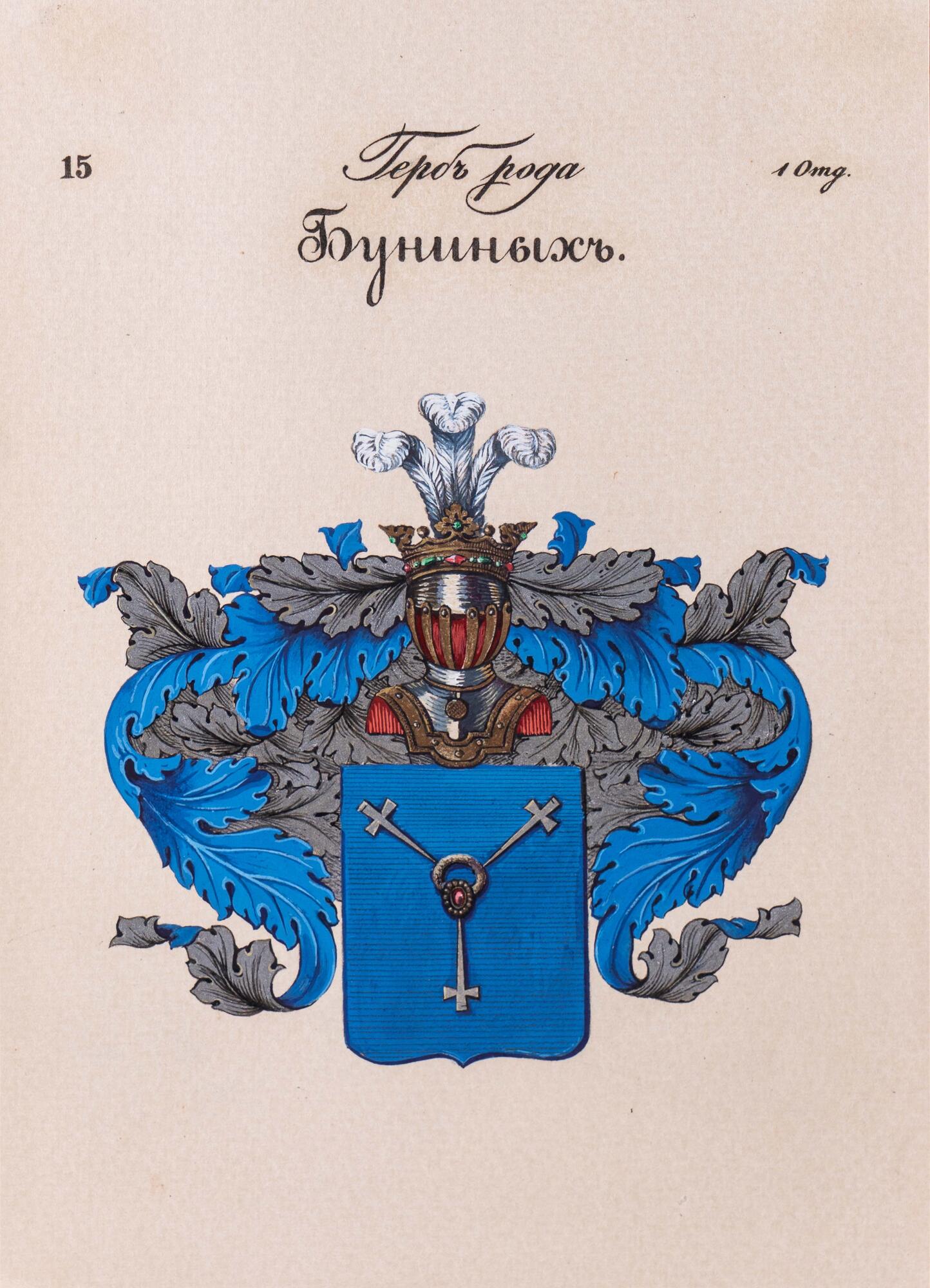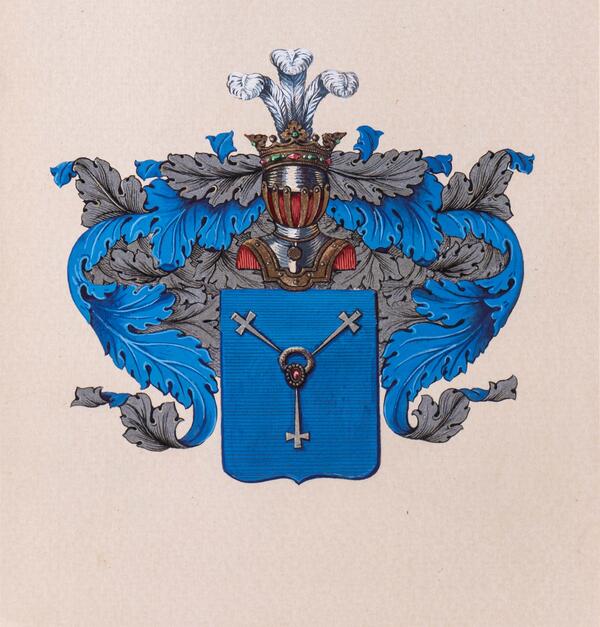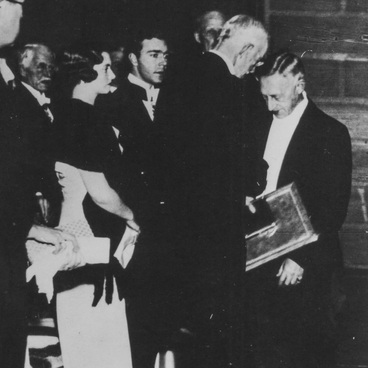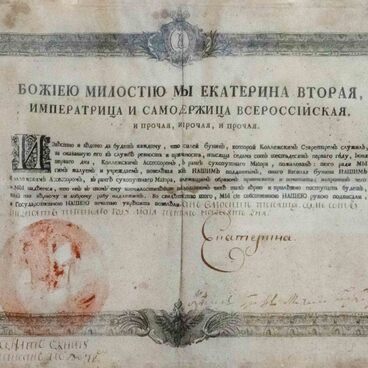The Bunin’s family, recorded in the sixth part of the ‘Velvet Book’ of ancient noble families, traces its genealogy to the ‘noble husband’ Simeon Bunkovsky, who with his retinue left Poland in the 15th century for ‘military service’ to the Moscow prince Vasily the Blind. Bunin’s ancestors were military people, or, as they used to say in the old days, “servicemen” and stood to defend the southern borders of Rus from the raids of the Crimean Tatars and Nogais.
Ivan Alekseevich recalled: “All my ancestors were connected with the people and with the land, they were landowners. My grandfathers and my fathers, who owned estates in central Russia, in that fertile sub-steppe, where the ancient Moscow tsars, in order to protect the state from the raids of the southern Tatars, created barriers from settlers of various Russian regions, where, due to this, the richest Russian language was formed and almost all the greatest Russian writers, headed by Turgenev and Tolstoi came from”.
Stewards, governors, sailors were also among the writer’s ancestors. ‘Genealogy and evidence of the nobility of the Bunin’s family’ is recorded in the Noble Genealogy Book kept in Oryol Region Archive. It states that Iakov Bunin “was ordered to refuse the estate in different villages and wastelands by the charter of Tsar Pyotr Alekseevich in 1706, and he, Iakov Bunin, by order of the Government Senate of 1722, was ordered to be included in the list of Moscow nobles”.
The subject of special pride for Ivan Bunin was his blood connection with the social layer to which many famous representatives of Russian culture belonged. Philosopher Ivan Ilin wrote about Bunin in an article: “It is it, our middle band, which has already presented the Russian people with so many wonderful talents – literary, musical and philosophical, – is eminent in his creations. For centuries, this peculiar, national, estate, spiritual, and cultural selection, the selection of subtle and gifted natures took place here, around Moscow… Here everything came together: this strong, strict climate with its great fluctuations and violent impulses; and an affectionate dreamy spacious landscape; and a century of blood and culture selection; and close proximity to the people”s peasant element, to the breath of the land; and the leisure of the manor house, with its cult of the clan, hereditary tradition of service”.
Ivan Alekseevich recalled: “All my ancestors were connected with the people and with the land, they were landowners. My grandfathers and my fathers, who owned estates in central Russia, in that fertile sub-steppe, where the ancient Moscow tsars, in order to protect the state from the raids of the southern Tatars, created barriers from settlers of various Russian regions, where, due to this, the richest Russian language was formed and almost all the greatest Russian writers, headed by Turgenev and Tolstoi came from”.
Stewards, governors, sailors were also among the writer’s ancestors. ‘Genealogy and evidence of the nobility of the Bunin’s family’ is recorded in the Noble Genealogy Book kept in Oryol Region Archive. It states that Iakov Bunin “was ordered to refuse the estate in different villages and wastelands by the charter of Tsar Pyotr Alekseevich in 1706, and he, Iakov Bunin, by order of the Government Senate of 1722, was ordered to be included in the list of Moscow nobles”.
The subject of special pride for Ivan Bunin was his blood connection with the social layer to which many famous representatives of Russian culture belonged. Philosopher Ivan Ilin wrote about Bunin in an article: “It is it, our middle band, which has already presented the Russian people with so many wonderful talents – literary, musical and philosophical, – is eminent in his creations. For centuries, this peculiar, national, estate, spiritual, and cultural selection, the selection of subtle and gifted natures took place here, around Moscow… Here everything came together: this strong, strict climate with its great fluctuations and violent impulses; and an affectionate dreamy spacious landscape; and a century of blood and culture selection; and close proximity to the people”s peasant element, to the breath of the land; and the leisure of the manor house, with its cult of the clan, hereditary tradition of service”.



